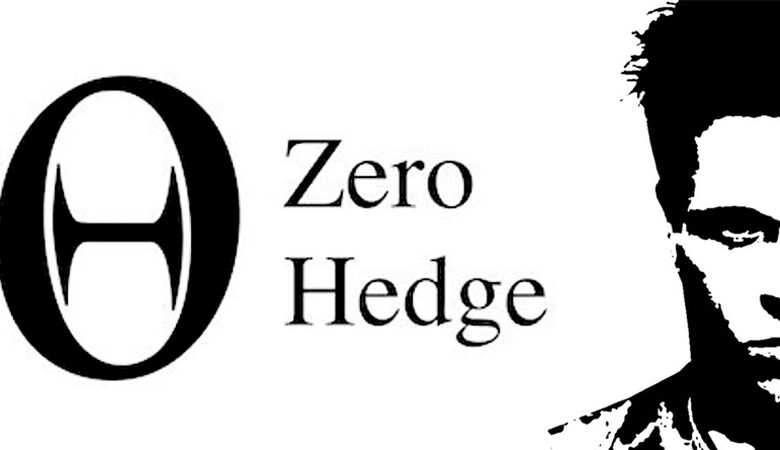0hedge: What Is It, Why People Search It & Should You Trust It?

In the vast universe of financial blogs, market commentary, and edgy economic hot takes, the term “0hedge” is popping up more frequently. For most people, it’s simply a misspelling or typo of “ZeroHedge”, one of the most infamous alternative finance websites on the internet.
But there’s more to it than just a typo. Sometimes 0hedge is used on purpose—by parody sites, clone accounts, or to sidestep brand filters. Let’s explore what 0hedge is actually about, why so many people look for it, and whether you should pay attention to the content you find under that name.
Why does “0hedge” exist?
It often boils down to three things:
1. A simple typo
ZeroHedge is typically written with an “O.” But on many keyboards and especially in quick social media posts, people type 0hedge with a zero. Autocorrect might not catch it, and it’s easy for the human eye to miss the swap.
2. Deliberate branding
Some smaller or alternative market commentators on Twitter, Telegram, or Substack style themselves as “0hedge” to signal they’re in the same lane—unfiltered, anti-establishment finance takes—but not the actual ZeroHedge.
It’s also a cheeky way to dodge platform bans, since big tech might target ZeroHedge’s known accounts for policy violations.
3. Scam & spoof attempts
Unfortunately, the popularity of ZeroHedge means shady operators sometimes spin up websites or pages under the 0hedge banner to attract clicks. They may steal content, run misleading ads, or push risky financial products.
What kind of content shows up under “0hedge”?
Most “0hedge”-labeled content (whether legitimate or not) follows the same blueprint that made ZeroHedge famous:
- Skepticism toward central banks
Lots of articles criticizing the Fed, ECB, or BOJ for money printing, low rates, or bailouts. - Warnings of financial collapse
Predicting the next stock market crash, real estate bust, or currency crisis. - Macro charts & global risk stories
Data-heavy posts about bond yields, debt-to-GDP ratios, or geopolitical flashpoints like Taiwan and Ukraine. - Bullish on gold, silver & Bitcoin
Hard money is a common theme—an answer to distrust in fiat currencies. - Sharp, often sarcastic writing
Headlines might be snarky or alarmist to drive engagement. That style is part of the brand.
Should you trust content under the “0hedge” label?
That depends. The original ZeroHedge website (zerohedge.com) is well-known, with a massive archive and track record—though it is often criticized for being overly bearish and sensational.
But random sites, Telegram channels, or Twitter handles using “0hedge” could be less reliable, or even outright scams. Always:
✅ Check the URL carefully.
✅ Look for an actual about page or known authors.
✅ Cross-check data and sources—don’t just take a dramatic headline at face value.
✅ Be cautious with investment pitches.
Remember, even ZeroHedge is best read as an alternative opinion, not gospel truth. It’s smart to pair it with mainstream economic data and analysis.
FAQs about 0hedge
❓ Is 0hedge the same as ZeroHedge?
No. Usually, 0hedge is either a typo for ZeroHedge or someone trying to ride the coattails of the brand. The official site is zerohedge.com. Anything else should be treated with caution.
❓ Why do people follow 0hedge-like content?
Because it often says what mainstream outlets don’t. ZeroHedge—and by extension 0hedge-style sites—tend to:
- Call out government debt risks
- Criticize central bank policies
- Predict asset bubbles
- Share edgy takes on geopolitical tensions
For many readers frustrated by CNBC or Bloomberg’s more sanitized tone, it feels refreshing—even if sometimes overly dramatic.
❓ Can I invest based on what 0hedge-style sites say?
Be very careful. These sites are opinion-heavy and thrive on dramatic forecasts. If you short the market every time they predict a crash, you might go broke. Use them to balance your perspective, but always do your own research or talk to a financial advisor.
❓ Are there other sites like 0hedge?
Yes. Some popular alternatives for edgy or contrarian finance content include:
- WolfStreet.com – detailed charts on inflation, autos, housing
- MishTalk (Mike Shedlock) – macroeconomics & monetary policy
- The Daily Reckoning – more newsletter-style, often gold-heavy
- MacroVoices podcast – institutional-level macro discussions
- Various finance subreddits (like r/WallStreetSilver)
❓ Could 0hedge be a phishing scam?
If you see a site called “0hedge.com” trying to get your personal info or sell you questionable investments—yes, absolutely avoid it. Only trust official domains and be wary of random financial Telegram groups.
Final thoughts
In the end, “0hedge” is mostly a mirror of our times. It shows how many investors and average people have lost trust in official stories and crave alternative explanations for why inflation is high, why the dollar is shaky, or why markets seem so fragile.
Just keep your critical thinking cap on. Whether you’re reading ZeroHedge or some edgy “0hedge” clone on social media, it pays to remember: doom sells, but balanced perspective pays.

